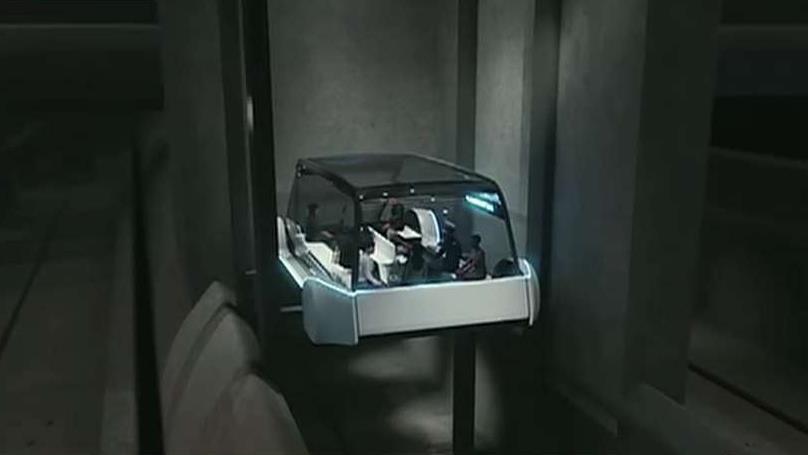Elon Musk calls off plan to build high-speed tunnel under Los Angeles
Elon Musk’s tunnel construction company — the Boring Company — said it has abandoned its plans to build a massive tunnel under the west side of Los Angeles after local resident groups sued.
The company said it withdrew its plans to construct a test tunnel, which would have run from a Boring Company property in Culver City after several local resident groups had challenged the city over its plan to exempt the project from environmental regulations.
The group filed suit shortly after the 2.7-mile tunnel was approved by a Los Angeles City Council committee.
In a joint statement released Tuesday by the Boring Company, it announced both sides reached a settlement.
"The parties (The Boring Company, Brentwood Residents Coalition, Sunset Coalition, and Wendy-Sue Rosen) have amicably settled the matter of Brentwood Residents Coalition et al. v. City of Los Angeles (TB- The Boring Company). The Boring Company no longer seeks the development of the Sepulveda test tunnel and instead seeks to construct an operational tunnel at Dodger Stadium," it said.
While the news is a setback, the company is still going full speed ahead on two other projects.
Its Dodger Stadium tunnel — named the Dugout Loop — is set to bring fans from neighborhoods west of downtown Los Angeles to the stadium in four minutes. The company said it plans to charge $1 for the service and the project is expected to take about 14 months to complete.
Its second tunnel, which is set to be completed by Dec. 10, according to a tweet from Musk in October, will run for about two miles from a parking lot at the SpaceX headquarters in Hawthorne. Further details on its exact route were not disclosed by the company.
Musk admitted on the "Joe Rogan Experience" podcast in September that his tunnel company idea actually “started out as joke” and only years later did it actually morph into a company.
"We decided to make it real and dig a tunnel under LA. And then other people asked us to build tunnels, so we said yes in a few cases,” Musk said on the podcast.




















